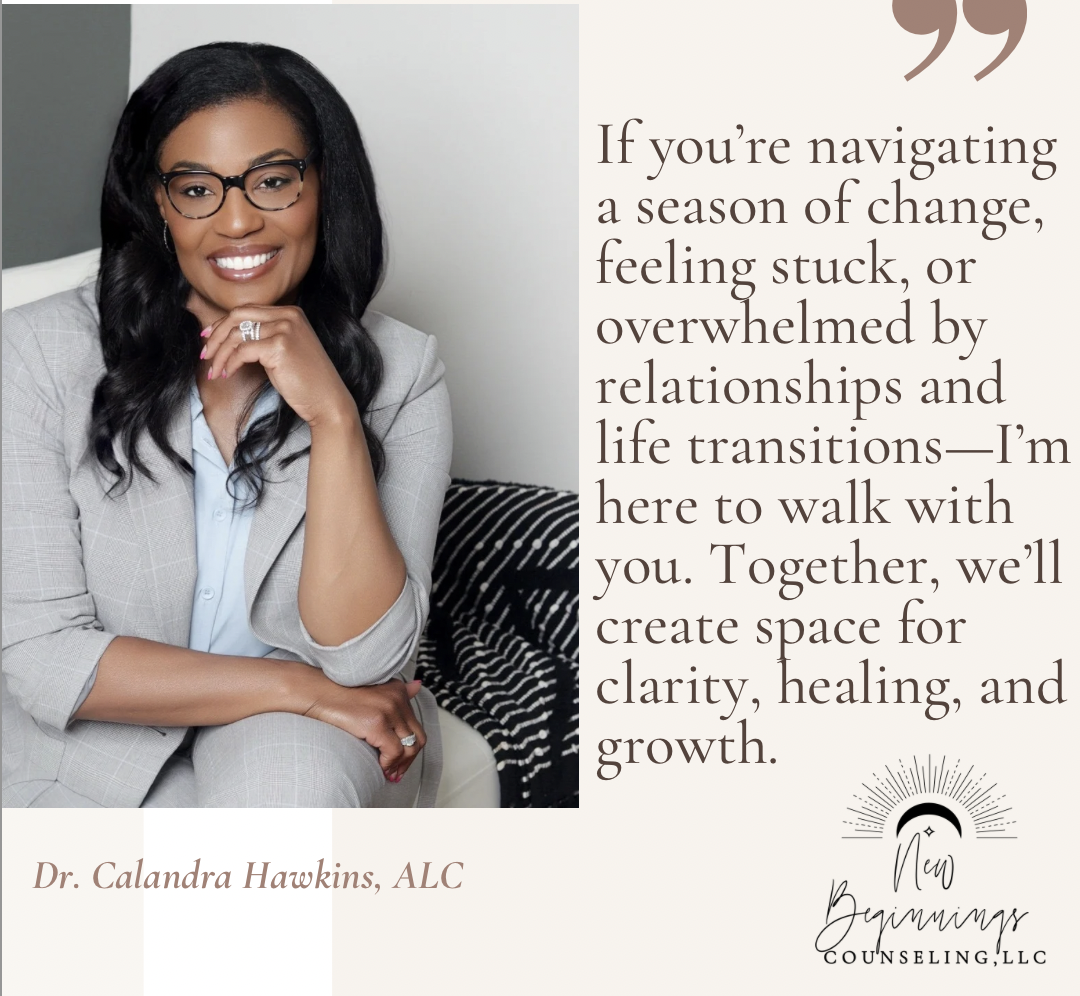Managing Stress and Protecting Your Mental Health
By Dr. Calandra Hawkins, ALC
April is Stress Awareness Month — a vital reminder that stress is more than feeling overwhelmed; unmanaged stress can increase the risk of depression, anxiety, physical health problems, and long-term emotional burnout.
At New Beginnings Counseling (NBC), we are committed to helping you build healthy coping strategies. Our therapists provide individualized care designed to address the underlying causes of stress and teach you evidence-based techniques to manage life’s demands, supporting your overall well-being.
If you are experiencing irritability, fatigue, sleep difficulties, or difficulty concentrating, we encourage you to reach out. Therapy can help you regain balance, restore healthy functioning, and prevent more serious mental health challenges.
The Hidden Cost of Untreated Chronic Stress
When chronic stress goes unaddressed, it creates significant strain on both the mind and body. Over time, this can lead to:
Persistent anxiety and worry
Depressive symptoms and emotional numbness
Memory problems and impaired decision-making
Increased risk of substance misuse as a coping strategy
Sleep disturbances and physical health complications such as headaches, gastrointestinal issues, and high blood pressure
Relationship difficulties and social withdrawal
Stress is not just an inconvenience—it is a health concern. Without proper intervention, chronic stress can contribute to the development of serious mood disorders, worsen physical illness, and diminish overall quality of life.
How Millennials and Adults in Their 40s–60s Can Manage Stress More Effectively
Many individuals in the 25-60 age group are balancing careers, caregiving roles, financial pressures, and personal development. To manage stress and protect mental health, consider these strategies:
Recognize burnout for what it is. Pay attention to signs such as emotional exhaustion, cynicism, and decreased performance. Early recognition is key to recovery.
Create emotional space. Allow time each day for activities that are restorative rather than productive. This may include mindfulness practices, journaling, or simply resting without guilt.
Redefine success. Challenge the belief that success means constant productivity or perfection. Protecting your emotional health is a true measure of long-term success.
Ask for help early. Therapy provides a structured and supportive environment to process emotions, develop coping skills, and prevent stress from escalating into more serious mental health conditions.
You Deserve More Than Just Survival
You do not have to carry the emotional load alone. Therapy is a proactive, powerful step toward healing and resilience.
Let’s build a healthier, more sustainable path together.
Schedule your therapy session with New Beginnings Counseling today:
📞 (334) 293-1411
🌐 www.nbcounselingllc.com
🔗 Click here to book directly online

